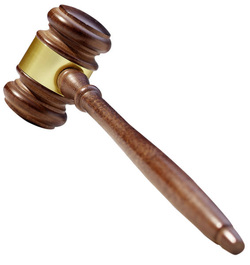
In our adversarial legal systems, the courts rely on each party to advocate for its side of a dispute so that all aspects of an issue can be fully heard. But sometimes a court needs to take matters into its own hands to make sure this happens such as when the U.S. Court of Appeals for the Second Circuit recently heard an appeal in SEC v. Citigroup. The appeal resulted from U.S. District Judge Jed S. Rakoff's rejection of a settlement of the SEC's allegations related to a $1 billion mortgage-bond product that Citi allegedly sold to investors without disclosing that it was also betting against the investment. Judge Rakoff rejected the settlement in part because he disagreed with the regulator’s willingness to let Citi settle without admitting wrongdoing.
In most appeals, the winner at the lower court level defends the decision of that court. But since both sides appealed Judge Rakoff's rejection, the Second Circuit was left with the question of who would defend his decision on appeal. Judge Rakoff himself supplied the a suggestion: he recommended that the Second Circuit appoint John R. Wing as counsel "to argue in support of the district court's position." The Second Circuit agreed, and appointed Mr. Wing to argue on the district court's behalf pro bono. If Judge Rakoff's ruling is affirmed, we may begin to see more of this procedure as District Judges reject more SEC settlements that they believe are not in the public interest.
In most appeals, the winner at the lower court level defends the decision of that court. But since both sides appealed Judge Rakoff's rejection, the Second Circuit was left with the question of who would defend his decision on appeal. Judge Rakoff himself supplied the a suggestion: he recommended that the Second Circuit appoint John R. Wing as counsel "to argue in support of the district court's position." The Second Circuit agreed, and appointed Mr. Wing to argue on the district court's behalf pro bono. If Judge Rakoff's ruling is affirmed, we may begin to see more of this procedure as District Judges reject more SEC settlements that they believe are not in the public interest.
